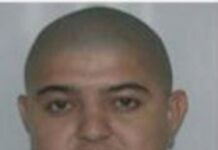PORT-AU-PRINCE, July 15 (Reuters) – Many of the Colombian ex-soldiers accused of involvement in the assassination of President Jovenel Moise went to Haiti to work as bodyguards, but others knew a crime was being planned, Colombia’s president said on Thursday.
Haitian authorities have said Moise was shot dead at his home on July 7 by a group of assassins including 26 Colombians and two Haitian Americans. Eighteen Colombians have been detained and three others were killed by police.
“There was a big group that were taken on a supposed protection mission, but within that group, there’s a smaller group, which were those who apparently had detailed knowledge of what was to be a criminal operation,” Colombian President Ivan Duque told La FM radio.
“Does that excuse the rest of the group? Unfortunately no, because they are also participating in the situation.”
Colombian news magazine Semana reported on Wednesday that one of the detained Colombians had confessed to Haitian authorities that seven of his compatriots took part in Moise’s killing. Reuters could not independently verify the report.
Families and colleagues of some of the detainees have told journalists in Colombia that the suspects were hired to work as bodyguards and are innocent.
The head of Colombia’s national police stressed on Thursday that Haitian authorities are leading the investigation.
A “small number” of the detainees had received U.S. military training in the past while serving as active members of the Colombian military, Pentagon spokesperson Lieutenant Colonel Ken Hoffman said on Thursday. He did not give further details.
Colombia is one of the strongest U.S. military partners in Latin America, receiving billions of dollars in security aid and training focused on countering Marxist guerrilla groups that are funded by drug trafficking, extortion and kidnapping.
A U.S. government source said a Senate committee is looking into training by the U.S. military of some of the Colombians detained on suspicion of Moise’s killing.
The assassination has pitched the already-troubled Caribbean nation into chaos, coming amid a surge in gang violence in recent months that has displaced thousands and hampered economic activity in the poorest country in the Americas.
The New York Times reported on Thursday that the head of security for the presidential palace, Dimitri Herard, was detained and is being questioned about why the attackers did not meet more resistance at the president’s home.
(Reporting by David Alire Garcia in Port-au-Prince, Oliver Griffin in Bogota, and Idrees Ali and Mark Hosenball in Washington; Writing by Laura Gottesdiener; Editing by Frances Kerry and Daniel Wallis)










